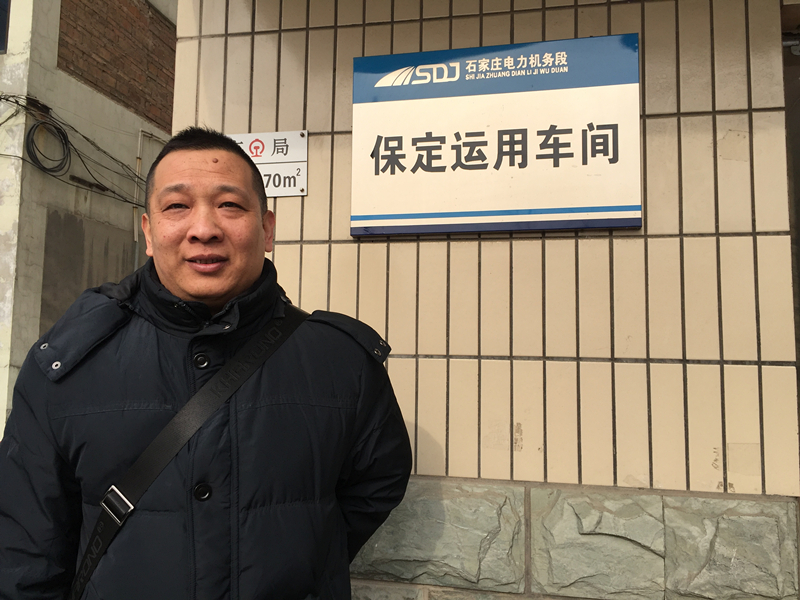Train driver continues down the family line
 0 Comment(s)
0 Comment(s) Print
Print E-mail China Daily, February 28, 2018
E-mail China Daily, February 28, 2018
When Li Bin told his parents in the mid-1990s that he wanted to be a train driver, they attempted to stop him in his tracks.

They felt they had good reason to be concerned. Li Baosheng, his father, knows how hard the job is, as he had driven trains himself - just like his father before him, and his grandfather and great-grandfather.
"After my experience, I knew it was tiring," the 68-year-old retiree said. "Although my family has a long tradition (of driving trains), I didn't want my son to suffer the same hardships."
Yet Li Bin's determination to become the fifth generation of this family to "ride the rails" proved just too strong.
First in the line was Li Wuyin, who started on the railways in 1901, according to the family. Then came Li Fangqing, who took the helm in the '20s; Li Shilin in 1946; and eventually Li Baosheng in 1980.
"When I was a child, our home was near a railway line, and I'd stare at the passing trains. I always begged my father to take me into the driver's compartment," he said, recalling his childhood in Baoding, Hebei province.
Li Bin has now been driving freight and passenger trains for 23 years between Beijing and Shijiazhuang, Hebei, along a line that runs from the capital to the southern metropolis of Guangzhou.
He said he understands why his parents were reluctant for him to take the job. "This inheritance may seem like a legend to other people, but for me, it's work I need to carry out carefully," he said. "It's not at all simple."
He said shifts last for 48 hours, half of which is spent driving, while the rest of the time is used to prepare the train, perform routine safety checks and take a series of short naps.

Li Bin prepares to start work at a train station in Baoding. [Photo by Zhang Yu/China Daily]
"I need to drive continuously for four to eight hours, during which I can only drink a little water because we're not allowed to leave our position," the 45-year-old said.
While a train is in motion, drivers need to be highly focused on the track ahead to ensure there is no debris or other blockages. If they spot anything, they need to stop the train immediately to avoid an accident.
Drivers also need to constantly communicate with their deputies about signals and other real-time updates.
In addition to the tough working conditions, Li Bin said he also appreciates his mother's initial concerns about family life.
"No matter whether it's a workday, weekend or holiday, we must be at our posts when the shift starts," he said, adding that as he regularly works nights, much of his time at home is spent sleeping.
"I can't help with the housework often or spend as much time with my wife and 17-year-old daughter as a normal office worker could."
Hao Ruimin, his mother, had a similar experience when her husband was working as a train driver. "When I married his father, I felt like I was the only one who was supporting the family and looking after the children," she said.
It looks like Li Bin can be more relaxed about the next generation, though. His daughter has said she is unlikely to become a train driver, but she still hopes to work with locomotives one day, to keep the family tradition alive.






Go to Forum >>0 Comment(s)